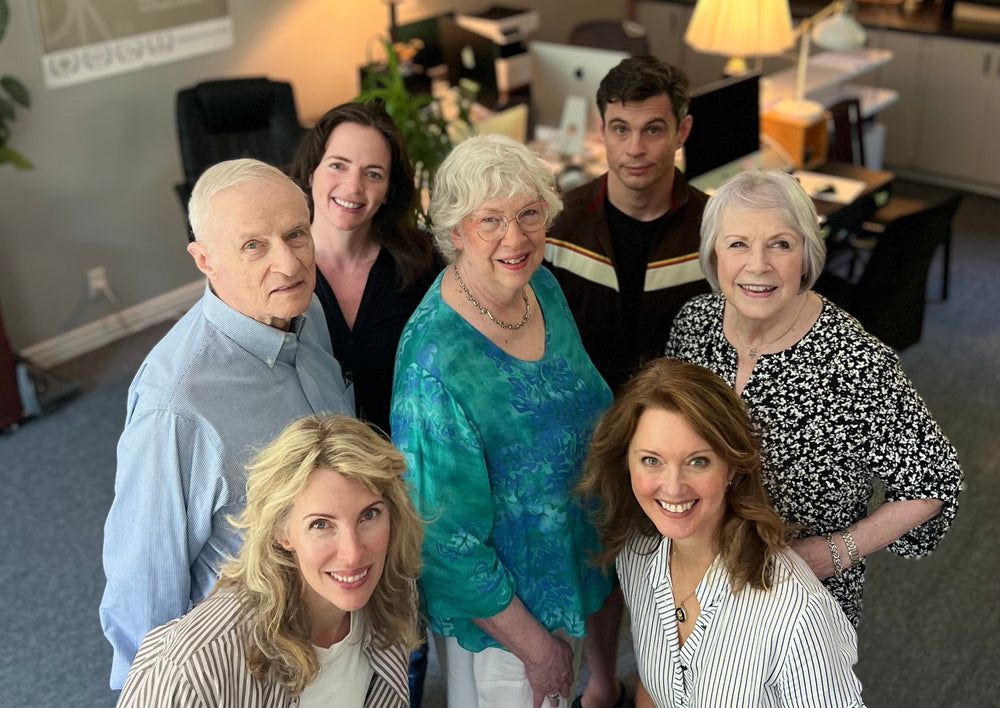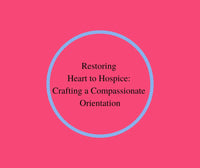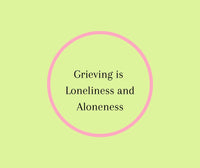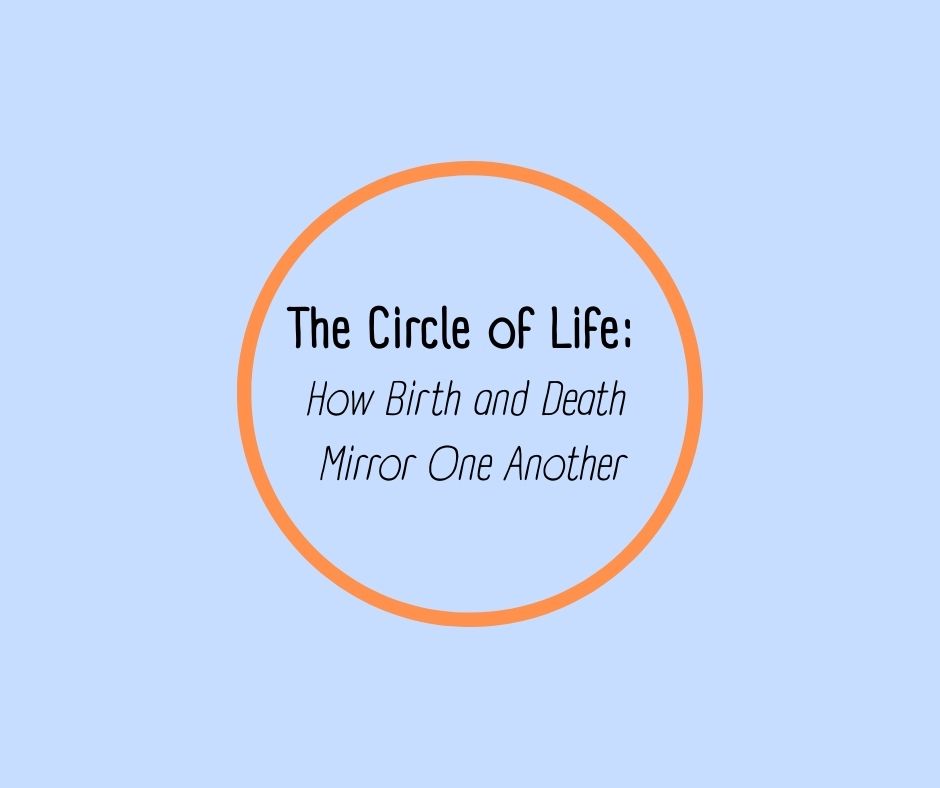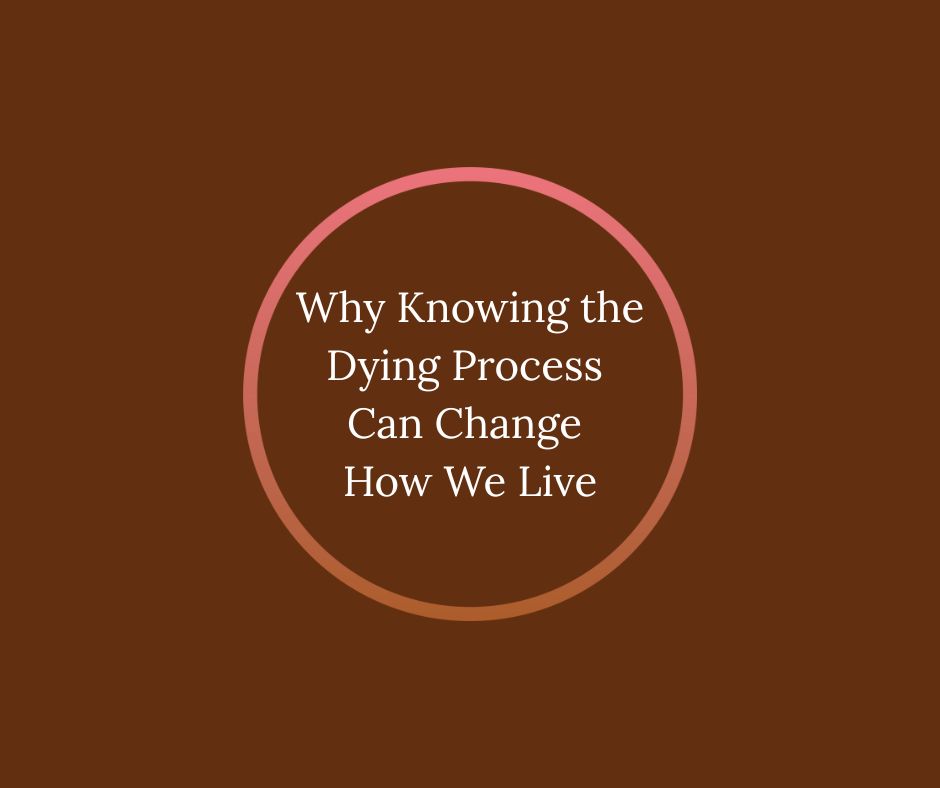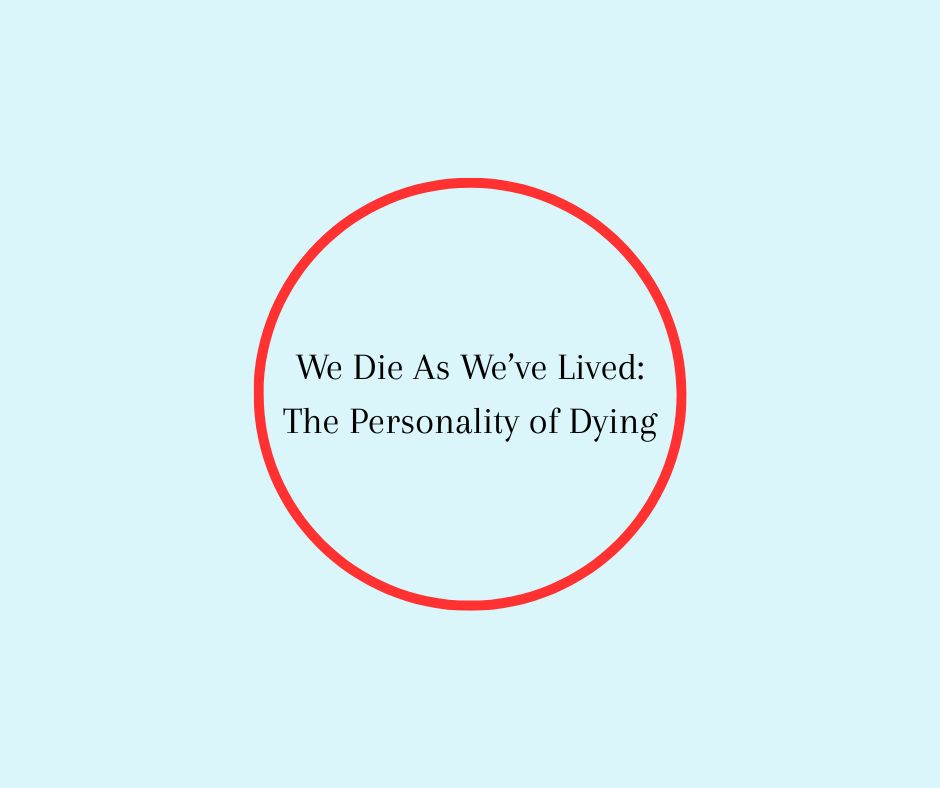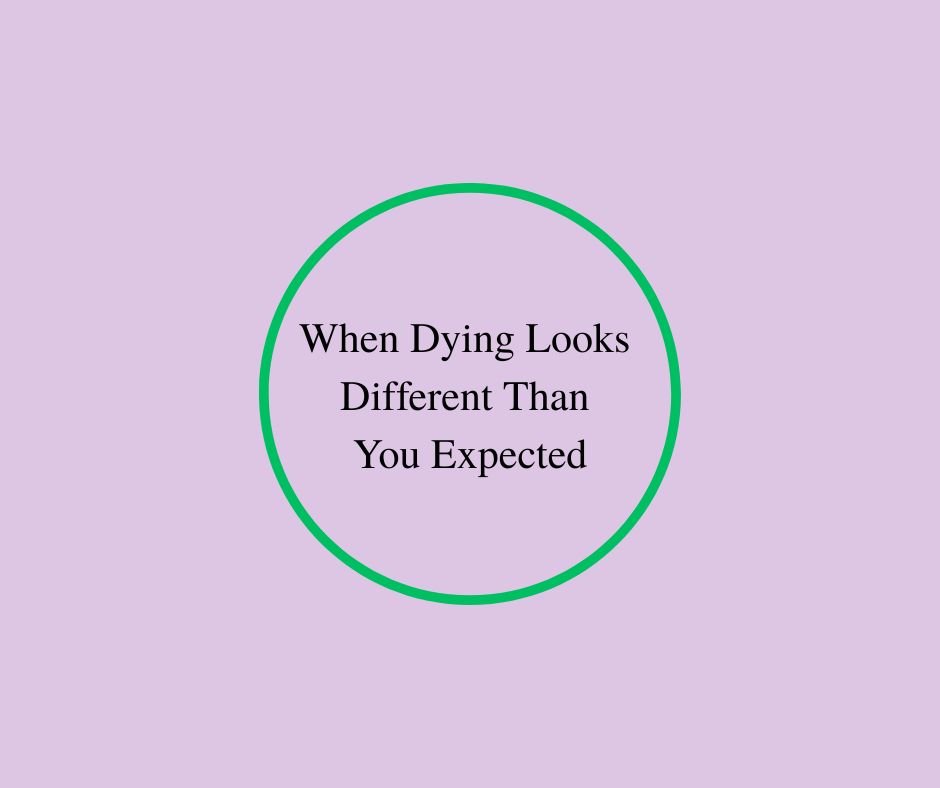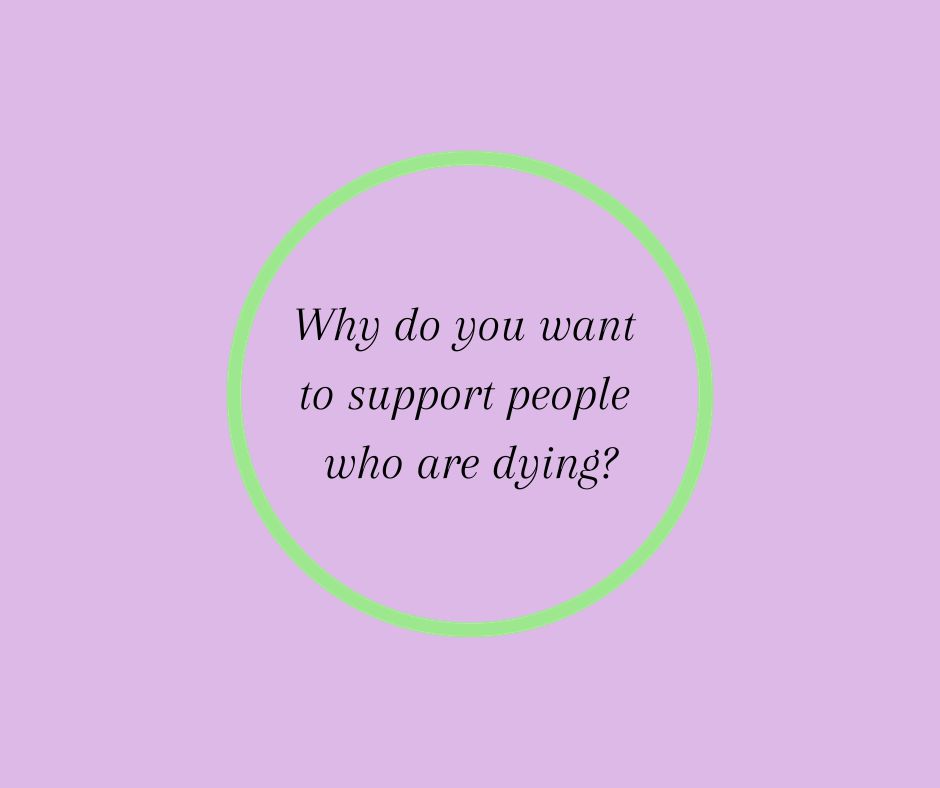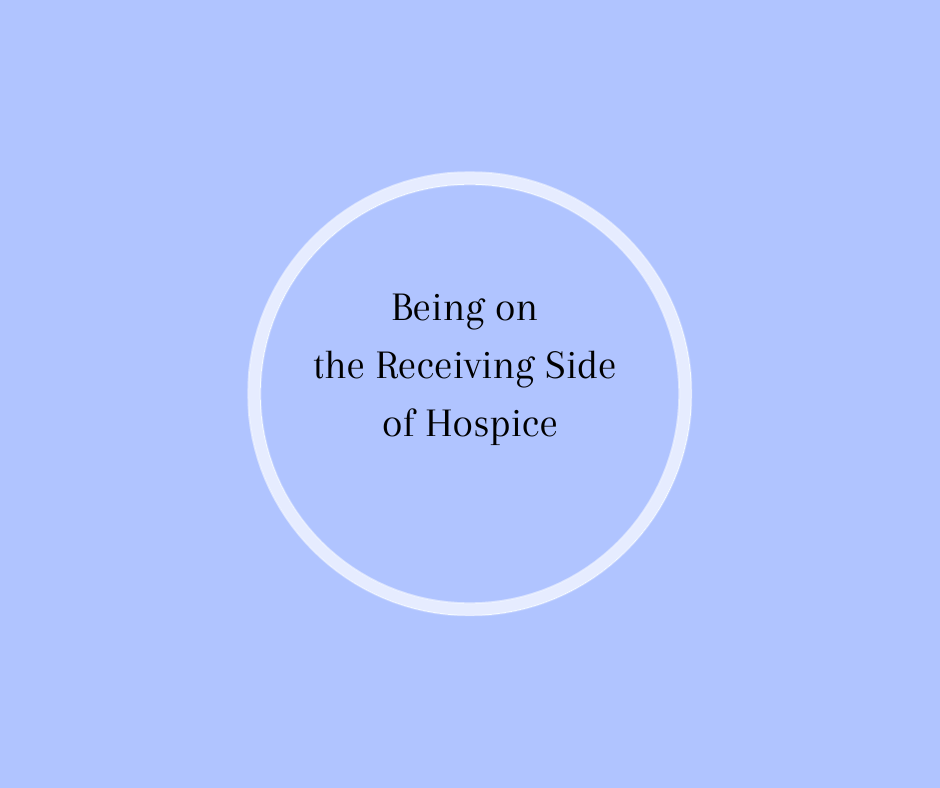
Something to Think About
a blog on end of life
- All posts
- addiction
- advance directive
- alzheimers
- Anger
- anticipation
- anticipatory grief
- Approaching Death
- assisted care
- assisted death
- Assisted Living
- Barbara Karnes
- bereaved
- Bereavement
- burnout
- BY YOUR SIDE A Guide for Caring for the Dying at Home
- cancer
- caregiver
- caregiver fatigue
- caregiver support
- caregiving at end of life
- children
- Clinician
- cna
- comfort care
- communication
- covid 19
- Dame Cicely Saunders
- Death
- death and dying
- death awareness
- death cafe
- death call
- death care
- death doula
- death education
- death midwife
- death of a pet
- death ritual
- dementia
- dementia doula
- diagnosis
- Director of Education
- disease
- DNR
- doctors
- dying
- dying looks different than expected
- dying pet
- dying process
- Dynamics of Dying
- Eating or not eating
- elderly
- Elisabeth Kubler-Ross
- end of life
- end of life doula
- end of life education
- end of life planning
- estate planning
- euthanasia
- family
- family caregiver
- father
- Fear
- Feeding
- Financial records
- Food
- food at end of life
- Funeral
- gift
- Gone From My Sight
- graduating from hospice
- gratitude
- Grief
- Grief Counselor
- grief support
- grieving
- Guilt
- holidays
- Home Care
- home death
- home health
- home healthcare
- Hospice
- Hospice Blue Book
- hospice care
- hospice chaplain
- hospice education
- hospice end of life care
- hospice for pets
- hospice myths
- hospice nurse
- hospice nurses
- hospice patient
- hospice physician
- hospice referral
- Hospice Social Worker
- Hospice Staff
- hospice volunteer
- hospice volunteer training
- hospital
- How Do I Know You ?
- How Do I Know You? Dementia at the End of Life
- Hydration or dehydration
- infant death
- joy
- labor
- labor at end of life
- labor to be born
- life limiting
- life support
- loss
- media
- Medicade
- medical visits
- Medicare
- medication
- medications
- memory care
- midwife
- mindfulness
- moment of death
- morphine
- mother
- My Friend I Care
- narcotics
- New Rules For End Of Life Care
- No Code
- Not Eating
- nurse
- nurses aide
- Nursing facility
- Nursing home
- nutrition
- Old Age
- older pet
- orientation
- oxygen
- pain
- pain at end of life
- pain management
- pain relief
- palliative care
- palliative sedation
- pandemic
- peace
- personality
- Pet death
- Pet illness
- physician
- podcast
- POLST
- prepare for death
- quality of life
- religion
- Retirement Home
- ritual bath
- RN
- sacred
- self care
- seniors
- signs of approaching death
- sleep
- Social Worker
- spanish grief literature
- stages of grief
- sudden death
- Suicide
- Supervisors
- support
- terminal
- terminal agitation
- terminal diagnosis
- terminal illness
- terminal restlessness
- The Eleventh Hour
- The Final Act of Living
- This Is How People Die
- Time
- Time of Death
- trauma
- treatments
- vigil
- visions
- volunteer
- volunteers
- washing the body
- widow
- widowhood
- wife
- Will
- You Need Care Too
Just as there are short labors and long labors in birth, there are short and long transitions at the end of life. Recognizing these parallels can help families worry less...
Most of us aren’t taught what dying actually looks like. When death isn’t sudden, there are natural signs and changes that unfold over months, weeks, and days. Understanding these patterns...
After being present at so many deaths, I’ve come to believe that we die the way we’ve lived. Our personality doesn’t change because we’re dying. Dying is the last part...
Most of us imagine dying will be quiet and peaceful, but real dying often looks different. Nothing bad is happening — the body is doing the natural work of letting...
It is hard to comprehend that our special person will die no matter what we do. No matter how many treatments, how much medicine, or how much food we give,...
Why do we hang on to life so desperately? Because it is all we really know. Yes, some of us have spiritual beliefs, that talk of “another life."
Dame Cicely Saunders — an important and influential physician, nurse, social worker, and writer in end of life care — established a specific facility to care for those people that...
First, there is no perfect relationship. Life is a learn-by-trial adventure. It’s hard work, not always smiles and happiness.
Our lifelong habits, personalities, and coping tools shape the way we meet death—and how awareness can open the door to deeper living.
Just as we have to go through an intensive process to enter this world, so do we go through labor to leave it.
In the hours to minutes before death, gather family and significant others. Encourage each person to spend some time alone with the person dying. This is the time to talk...
People don’t die like they do in the movies. Mom is not going not going to say some profound words, close her eyes and be dead...
...That caregivers put so much energy, time, love, and concern into taking care of their person that they can become blind to or just plain don’t want to see the...
I am hearing stories about the lack of professional staff training for new hires, which led me to wonder about volunteer training...
support people who are dyingBeing involved with end of life care is not something most people want to do, so what brings you?
Once we get up the courage to call hospice, we want to see you immediately. Actually, we needed to see you, hear your guidance and advice, and receive your services yesterday. Families...
Now I have to learn how to be a widow. How to create a new life, a new way of being. I am truly alone.
The role of any end of life worker is to begin teaching immediately, on the first visit -- teaching about approaching death, what to look for, and what to do. That’s...
As caregivers, we want so much to do the “right thing” for our special person. We know death is coming but still try to do all we can to stop...
Addressing the timelines of approaching death also neutralizes the false hope that our person will get better, that there is more time.
Dying patterns are centered around food, sleep and socialization. Assess those three areas and you can track the dying process.




